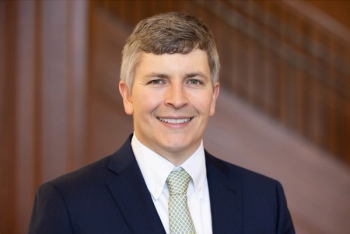
- Pharmaceutical Executive-09-01-2022
- Volume 42
- Issue 9
Tricks for Navigating The ‘Talent War’ In Life Sciences
How companies can adapt to today’s fast-changing hiring climate.
I recently spoke with Fred Skinner, chief human resources officer at Eversana, about the current situation around hiring and retaining employees that some are calling “The Great Resignation.” He preferred to call it the “talent war,” as he feels that’s more accurate.
“The salary fluctuation is crazy,” he says. “It’s slowed down, but we were seeing people get offers for the same roles 40% more than what they were making, which was the benchmark a year ago.”
While signs show that the Great Resignation is slowing down, leaders are still dealing with the lingering effects. Employees’ views on work changed over the past two years. According to Skinner, he’s had to solve for two problems: more competition during the hiring process and retaining employees already working for the company.
“There’s a huge retention issue,” he says. “You look across our organization and there’s going to be some variability. At our India organization, turnover has historically been at 6%, including voluntary and involuntary turnover, which is amazing. There’s probably about 600–800 folks in India right now working at Eversana, and turnover has jumped up to right around 15%, so it’s more than doubled.”
As Skinner explains, the pandemic put pharma in the limelight, and that resulted in new innovations, especially in the “new go-to-market approach” for rare disease drugs. This resulted in a “need for talent in all of pharma,” which created huge demand for workers, making it harder to fill positions after employees leave.
Companies need to adapt to the situation in order to appeal to candidates. Skinner discusses the issues that are important to potential hires. Obviously, money is at the top of many workers’ lists, but they often care about more than that. “We really pull on the things that are beyond salary, like the growth and culture that we have, diversity, inclusion, flexibility, and purpose is a big one, especially in the pharma space,” Skinner explains.
COVID changed the way candidates view certain aspects of work, and Skinner doesn’t expect things to go back to the way they were before. For example, one of the areas where he sees the most turnover is with virtual employees. He believes that since they work remotely, they don’t build the same sense of community and connection with the company and colleagues as in-office employees do.
When it comes to attracting new workers or keeping existing ones happy, Skinner stresses that there’s one important aspect of work that often gets overlooked: allowing people to actually do their jobs with as few complications as possible. As companies get bigger, they tend to add more bureaucracy and ambiguity, he explains. This makes performing the designated job requirements more difficult for workers, which can be a reason why they start looking for other employment opportunities. “We worked really hard to keep it simple and hire great people and trust them to do awesome work,” says Skinner on Eversana’s philosophy.
When trying to fill new roles, Skinner says it’s not uncommon to find candidates that have multiple offers on the table. Often, smaller companies find themselves competing against larger ones for the same candidates. As more workers shift to remote jobs, companies can search for candidates in new markets but still use the same salary data as they would in more competitive (and expensive) regions like New York or California.
“There are other pandemic-related things that candidates are looking for,” Skinner says, “like having a work-life balance. They don’t necessarily want to be in the office all the time. Some do, so you must have a lot of that flexibility. There continues to be a short supply of talent, not just in agency but even the hourly workforce.”
An increase in employee exoduses makes the process of hiring new workers more stressful, with the added potential that new hires may not stay for very long. If leadership adjusts to the new normal, however, this might not be a huge problem. Skinner, for example, says that he’s seen a lot of employees return to Eversana after trying out something different. While a lot of the turnover has occurred in remote positions, he says that company leadership made adjustments to build community within the organization, and is finding ways to include its out-of-office employees.
“If managers and leaders can get behind truly trusting the people and process of enabling people to do awesome things and make decisions, it just works out,” says Skinner. “I wish there was a more complex answer—the special sauce—but it’s that simple.”
Mike Hollan is Pharm Exec’s Editor. He can be reached at
Articles in this issue
over 3 years ago
ESG: Applying Lessons From Consumer Marketover 3 years ago
21st Annual Industry Audit: Pharma Performance Checkover 3 years ago
The Manufacturing Edge on Path to Marketover 3 years ago
How Good is a Good Product Launch?over 3 years ago
More Than a Name: Vyvgartover 3 years ago
Fighting Vision Loss: Vabysmoover 3 years ago
A Sleeping Giant?: Quviviqover 3 years ago
Next-level Efficacy: MounjaroNewsletter
Lead with insight with the Pharmaceutical Executive newsletter, featuring strategic analysis, leadership trends, and market intelligence for biopharma decision-makers.




